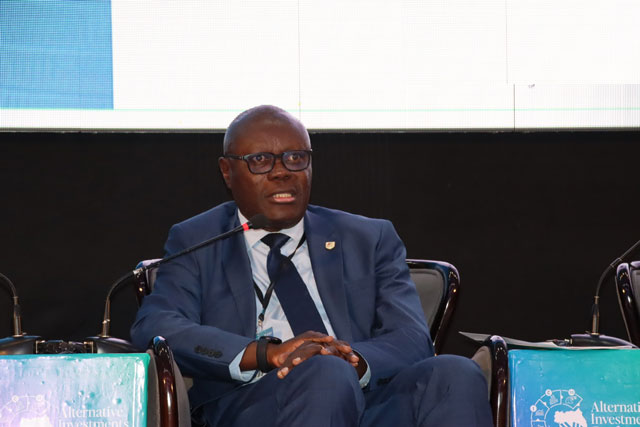
Kampala, Uganda | THE INDEPENDENT | Financial industry regulators have called for a review of the pension sector regulations to enable retirees to continue benefiting from the retirement benefits fund even after retirement. Currently, on attaining the required qualifications for receiving the benefits, the savers receive all that is due to them in a lump sum.
Uganda’s retirement benefits schemes have a total asset value of Shillings 21 trillion, with the National Social Security Fund (NSSF) accounting for 86 percent of this, while the rest is held by private and employee schemes. Until early last year, NSSF savers would only receive their benefits in a lump sum after meeting the terms including the 55 age mark, permanent disability, terminal illness, leaving the country for foreign employment, or joining public service.
In 2022, the amended NSSF Act introduced midterm access to benefits, which allowed savers to access 20 percent of their benefits after attaining 45 years of age and saving for a cumulative 10 years. Now, the Uganda Retirement Benefits Regulatory Authority (URBRA) and the Capital Markets Authority (CMA) agree with NSSF’s consistent claim that retirees deplete their savings within three years of receiving them, leaving the rest of their lives without income.
CMA chief executive officer, Keith Kalyegira says there should be a review of the laws to allow the Funds to act like pension schemes since it is a pension sector. This would mean that a retiree would be paid periodically, particularly monthly, from their benefits for the rest of their lives, instead of withdrawing and spending the money soon after retirement.
He was speaking at the Alternative Investments Conference in Kampala, organized by the CFA (Chartered Financial Analysts) Society of East Africa under the theme “Unlock Local Capital. Transform Capital Markets.” The event chairperson, Alan Lwetabe, also director of investments at the Deposit Protection Fund, said the main challenge facing the retirement benefits schemes is maintaining liquidity as older members withdraw their savings.
However, Martin Nsubuga, URBRA Chief Executive assured that there is a lot of liquidity in the sector. But he also supported the need to amend the policies to allow retirees to be paid a monthly pension to sustain their retirement age needs. Nsubuga was however aware that this proposal would face resistance as was the case with the midterm proposal.
He added that this move would also help the country grow and sustain available resources for capital investment. Otherwise, according to him, more than one-third of the assets at NSSF belong to savers ages 45 and above and this means that between now and 15 years to come, more than seven trillion could be withdrawn, leaving the schemes in liquidity distress.
Asked for his view, Joseph Enyimu, the Acting Commissioner, Economic Policy and Research at the Ministry of Finance, Planning, and Economic Development also agreed with these views. He said that the NSSF had so far done what is in their powers by giving investment and financial literacy advice to retirees so that they benefit from their savings for longer. Enyimu called for the option of a pension system that would give savers a choice between periodical payments or lump sum.
Meanwhile, Kalyegira said that much as the CMA and government generally support the use of local savings to fund government infrastructure, there is still very little that the domestic resources can do. He was responding to CFA Lwetabe’s assertion that a country like Norway uses pension funds to finance energy Infrastructure in Uganda, adding that Uganda can do the same with her pension funds. However, Kalyegira said some of the infrastructure needs of the country are too big to be financed domestically.
****
URN
 The Independent Uganda: You get the Truth we Pay the Price
The Independent Uganda: You get the Truth we Pay the Price


